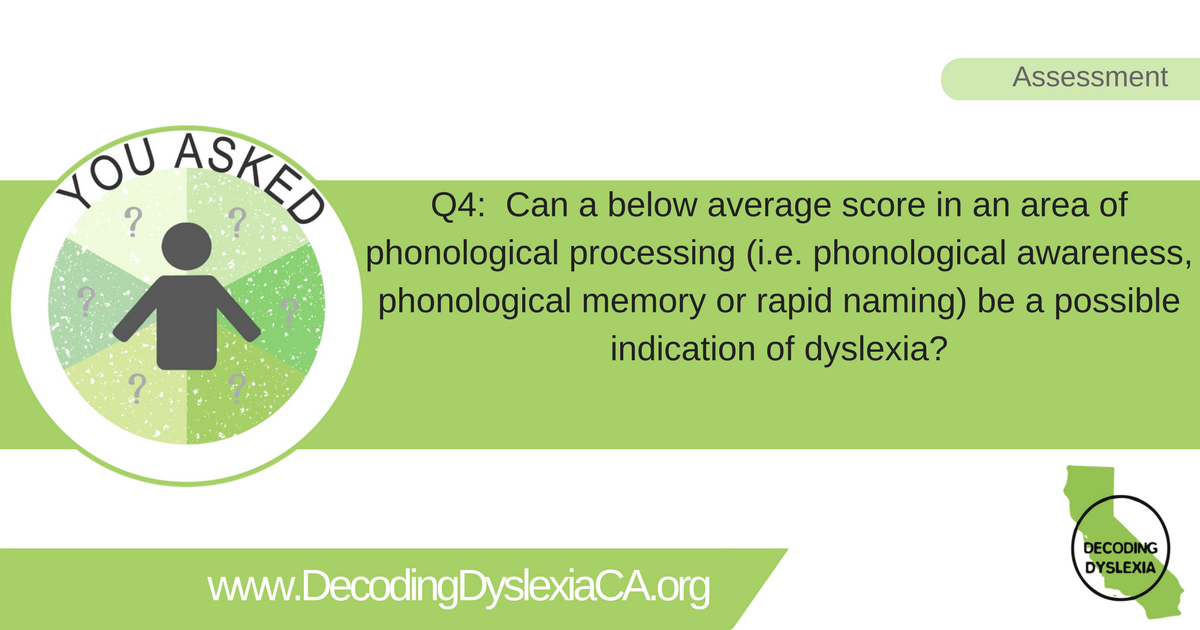
Download a PDF version of this You Asked question and answer HERE.
Q4: Can a below average score in an area of phonological processing (i.e. phonological awareness, phonological memory or rapid naming) be a possible indication of dyslexia?
A: Yes.
Students who demonstrate weaknesses in the phonemic awareness component of phonological awareness often have difficulties with decoding and spelling. When students have attained rudimentary skills in phoneme blending, phoneme segmentation, and phoneme manipulation (a few of the aspects of phoneme awareness), they are able to learn to associate phonemes (speech sounds) with the letters (graphemes) that represent them in print. Together, phoneme-grapheme association—the foundation of spelling, and grapheme-phoneme association—the foundation of decoding, are called phonics.
Students with slow naming speed, another component of phonological processing, often have problems with reading fluency. Retrieval fluency difficulties are often demonstrated as students struggle to retrieve words during both speaking and written expression (e.g., content specific vocabulary, labels, math or scientific terms, or a formula).
Students with phonological memory deficits may have difficulty with the working memory requirements for keeping track of the steps when decoding an unfamiliar word or in recalling and being able to correctly pronounce an unfamiliar multi-syllable word.
If screening reveals performance below expectations in any of the three components of phonological processing, additional assessment is needed to determine eligibility for special education services under the category of specific learning disability. This comprehensive assessment must include measures of the academic skills (e.g., decoding, spelling, oral reading fluency [rate-accuracy-prosody]) that are often affected by deficits in phonological memory, phonological awareness, and naming speed—and are characteristics of students with dyslexia.
(Source: Nancy Cushen White, Ed.D. Clinical Professor—Pediatrics-Adolescent and Young Adult Medicine-UCSF /UCSF Dyslexia Research Center)
For more YOU ASKED questions and answers click HERE

